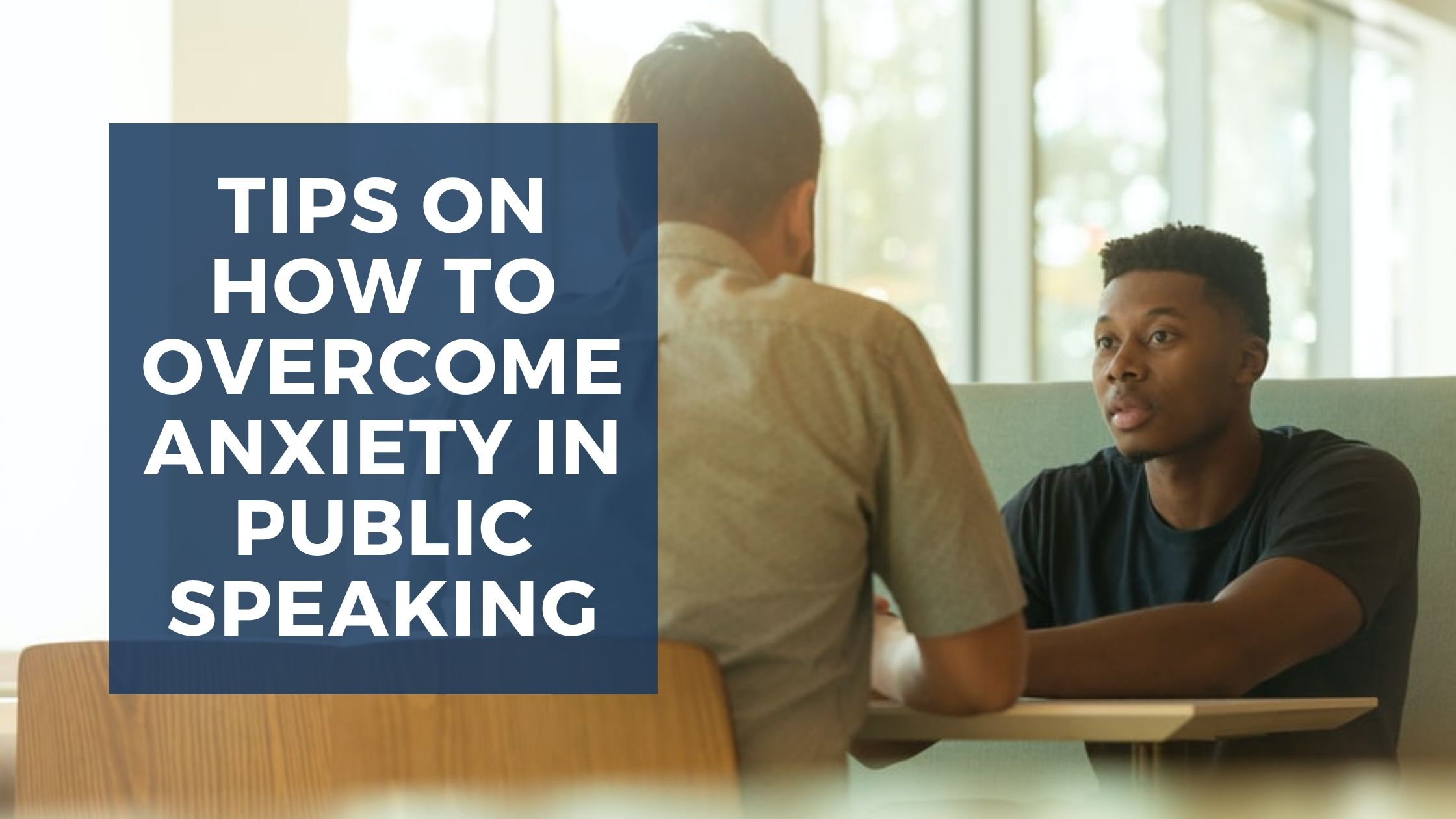Do you feel nervous speaking in public? You are not alone. Many people find giving a speech or presentation to be an anxiety-inducing experience.
However, there are ways to gain confidence in public speaking, no matter how big the audience may be! If you are struggling to build your confidence in this area, try the following tips that have helped me overcome my fear of public speaking.

Start with a personal story
I remember the first time I was on stage to speak at a conference. It was terrifying. My palms sweat, my heart raced, and all I wanted to do was crawl into a hole and hide. The worst part? Someone just asked me how many people were here!
There’s no such thing as natural-born speakers. Sure, there are some people who naturally have a talent for speaking, but they’re few and far between – most of us need to learn how to speak in public. And when you stop and think about it, we all face the same fears: we want to be confident that what we say is going to make sense; that our points will stand up under scrutiny from an audience or panel; that our verbal skills won’t desert us at just the wrong moment.
If you’ve never given a presentation before, start your speech with an interesting personal story. It’s the best way to make people know that it’s okay for them to take their time while listening and relax because they’re not in any kind of competition. “Don’t be afraid of silence,” he says.
“It’ll happen naturally if you give yourself enough time between points; don’t rush into the next one too soon.” Silence is a natural pause like taking a breath or raising your hand when speaking – but how many speakers do we see who are so intent on getting everything out at once? Remember: this isn’t about us as much as it is about letting our audience understand what we mean by sharing our thoughts, knowledge, and experience.

Talk about your experience and what you learned from it
How did you get over your fear of public speaking?
I had an experience where I couldn’t speak in front of a group. This made me realize how important it is to learn how to do it well because there are many opportunities for people to present themselves and their ideas, such as interviews or lectures. It was difficult at starting, but with more practice, my confidence improved tremendously.
What would be the best advice that you can give someone who has difficulty speaking in public? One way might be practicing by talking into a mirror for about fifteen minutes every night before bedtime while wearing clothes one wears on stage – this helps overcome any self-consciousness when looking yourself in the eye after all these years (or months) without witnessing your own reflection.
I also recommend finding a mentor who is skilled in public speaking and ask if they will speak with you for fifteen minutes every day to help build up confidence – this can be done on the phone, Skype, or Google Hangouts. If that person agrees, make an appointment each morning at ten o’clock (or another time of your choice) where you talk about whatever comes into mind so as not to worry too much about what’s going to happen next. The more comfortable we get, the better our talking skills become!
Action Item
Find a member of the audience that is: engaged, nodding or smiling in each section of the room.
Practice your speech in front of a mirror to get used to the sound of your voice
The sound of your voice is a large part of how confident you will feel when speaking in front of people. Practicing the speech in front of a mirror can help you get used to hearing yourself speak, which may make it easier for some shy individuals.
This is a good way to help you get comfortable with how your voice sounds, but it doesn’t really substitute for practicing in front of people. It can also help you notice how your body language affects the way people perceive you.
I’ll start with a disclaimer: I am not a public speaker. Now, this doesn’t mean that I can never work up the nerve to talk in front of people; it just means that when faced with an audience, my heart starts racing, and I get sweaty palms. What’s worse is if there are cameras or recording devices pointed at me because all of those lights make me feel like everyone is watching me.

Find a friend or family member to listen and give feedback on how you sound
Do you have a friend or family member who will listen and give feedback on how you sound when speaking? This person can help provide support during your speech, as well as offer constructive criticism. Ideally, this person should be someone close to you but not too closely related – they need to know enough about the topic that they’re able to understand it in order for them to offer helpful advice.
When practicing, try reading aloud from a script or trying out an idea without any text at all: start by just saying what’s going through your head. You’ll quickly find where things are unclear or sentences don’t flow right, and therefore adjust accordingly before presenting in front of others! With time, practice (and patience), these skills will get better, and you’ll be able to speak confidently, even if your voice cracks now or then.
Pro Tip
Deal with any negative past public speaking experiences.
Some more tips on how to overcome anxiety in public speaking
- Take deep breaths. Taking slow, controlled breaths will help you relax and focus your energy internally rather than externally where the pressure is coming from.
- Focus on what you want to say, not what others may think of it. If there are any doubts about a point or statement that you're making, then just stop talking! That's okay because nobody is perfect at everything they do - we all make mistakes. And remember: if someone disagrees with something that was said, then it won't be long before they disagree with other things too! Be open-minded enough to take criticism no matter how harsh it might seem and use feedback as an opportunity for growth. People who can't do this are the ones who stay in their comfort zone and never try anything new.
- Don't be afraid to do things outside of your comfort zone - you'll grow from it. We all have times when we're uncomfortable with a certain situation, but that doesn't mean that we should avoid doing those activities at every cost! And after we've done something new for a while, not only will our confidence levels go up as time goes on, but so too will our ability to handle difficult situations more effectively than before because now they don't seem quite as bad.
- Ask questions if you need clarification during an event or presentation. A lack of understanding can easily make someone feel like they aren't intelligent or good enough; however, this is a great chance to show how listening and learning are important in any situation.
- Don't rely on others for your personal validation - you're the best person to judge that! When we focus too much on what other people think of us, it can make us feel so insecure about ourselves. It's always better to have a more realistic view of yourself - even if there were negative comments made by someone else, remember that they weren't talking about YOU when they said them; instead, they only spoke from their own perspective or experience with respect to themselves.








